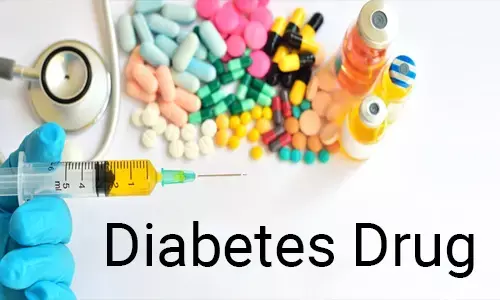- Home
- Medical news & Guidelines
- Anesthesiology
- Cardiology and CTVS
- Critical Care
- Dentistry
- Dermatology
- Diabetes and Endocrinology
- ENT
- Gastroenterology
- Medicine
- Nephrology
- Neurology
- Obstretics-Gynaecology
- Oncology
- Ophthalmology
- Orthopaedics
- Pediatrics-Neonatology
- Psychiatry
- Pulmonology
- Radiology
- Surgery
- Urology
- Laboratory Medicine
- Diet
- Nursing
- Paramedical
- Physiotherapy
- Health news
- Fact Check
- Bone Health Fact Check
- Brain Health Fact Check
- Cancer Related Fact Check
- Child Care Fact Check
- Dental and oral health fact check
- Diabetes and metabolic health fact check
- Diet and Nutrition Fact Check
- Eye and ENT Care Fact Check
- Fitness fact check
- Gut health fact check
- Heart health fact check
- Kidney health fact check
- Medical education fact check
- Men's health fact check
- Respiratory fact check
- Skin and hair care fact check
- Vaccine and Immunization fact check
- Women's health fact check
- AYUSH
- State News
- Andaman and Nicobar Islands
- Andhra Pradesh
- Arunachal Pradesh
- Assam
- Bihar
- Chandigarh
- Chattisgarh
- Dadra and Nagar Haveli
- Daman and Diu
- Delhi
- Goa
- Gujarat
- Haryana
- Himachal Pradesh
- Jammu & Kashmir
- Jharkhand
- Karnataka
- Kerala
- Ladakh
- Lakshadweep
- Madhya Pradesh
- Maharashtra
- Manipur
- Meghalaya
- Mizoram
- Nagaland
- Odisha
- Puducherry
- Punjab
- Rajasthan
- Sikkim
- Tamil Nadu
- Telangana
- Tripura
- Uttar Pradesh
- Uttrakhand
- West Bengal
- Medical Education
- Industry
Breakthrough: Two-weeks of teplizumab may delay T1D onset by three years

Type 1 diabetes is a chronic autoimmune disease that leads to dependence of patients on exogenous insulin for survival. Teplizumab may significantly delay onset of type 1 diabetes in high risk patients, finds a new study.
NEW YORK - Researchers have found in a new study that a breakthrough drug teplizumab significantly delays the onset of type 1 diabetes (T1D). The findings revealed that a two-week course of teplizumab delayed the onset of clinical T1D by three years as compared to those taking a placebo.
The findings provide further evidence of disease-modifying effect of drug candidate teplizumab.
The data of Phase 2 Teplizumab Prevention Study Clinical Trial was presented at the American Diabetes Association (ADA)'s 80th Scientific Sessions.
These results add another year to the average time reported to reach insulin dependence in teplizumab treated subjects compared to placebo treated controls. The primary results of this trial, led by Kevan C. Herold, M.D. and colleagues, were presented at the 2019 ADA conference and published in the New England Journal of Medicine demonstrating a two year delay in T1D onset for those using the drug.
In ongoing analysis of trial data, Sims and colleagues found that subjects treated with teplizumab had higher rates of insulin secretion and C-peptide levels than those taking a placebo, indicating a change in the normal progression of T1D. Study participants taking a placebo showed no change since last year's reporting in the median time to clinical diagnosis of T1D during this follow-up period and maintained a decline in insulin and C-peptide production, which is consistent with beta-cell destruction caused by the disease. The trial involved individuals at high risk of developing T1D, based on the presence of two or more autoantibodies, which are detected through a screening blood test.
"We are excited and hopeful about what the newly released trial results mean for the type 1 diabetes community. This is the first disease-modifying drug with data showing a long-term delay to insulin dependence," said Aaron J. Kowalski, Ph.D., President, and CEO of JDRF. "This is a major milestone in the global effort to comprehensively understand T1D and support the advancement towards prevention and cures for this disease."
The study was conducted by TrialNet, a clinical trial network focused on T1D prevention, and funded the National Institute of Diabetes and Digestive and Kidney Diseases, primarily through the Special Diabetes Program. Provention Bio provided study drugs and additional site monitoring.
In 2019 the U.S. Food and Drug Administration (FDA) granted Breakthrough Therapy Designation and the European Medicines Agency (EMA) granted PRIority MEdicines (PRIME) designation to teplizumab, for the prevention or delay of T1D in individuals at-risk of developing the disease. CD3 is a blood marker that helps to activate the immune cells--called T cells--which are thought to be responsible for the disease. Type 1 diabetes, a life-long autoimmune disease, affects nearly 1.6 million Americans and 18 million people globally.
JDRF, the leading global organization funding T1D research, has supported the research of teplizumab for many years, including studies that have informed the mechanistic analysis ongoing with teplizumab trial samples. In 2017, the JDRF T1D Fund made an equity investment in Provention Bio, which is developing teplizumab for the prevention or delay of T1D.
For further reference log on to:
N Engl J Med 2019; 381:603-613
DOI: 10.1056/NEJMoa1902226
Dr Kamal Kant Kohli-MBBS, DTCD- a chest specialist with more than 30 years of practice and a flair for writing clinical articles, Dr Kamal Kant Kohli joined Medical Dialogues as a Chief Editor of Medical News. Besides writing articles, as an editor, he proofreads and verifies all the medical content published on Medical Dialogues including those coming from journals, studies,medical conferences,guidelines etc. Email: drkohli@medicaldialogues.in. Contact no. 011-43720751


